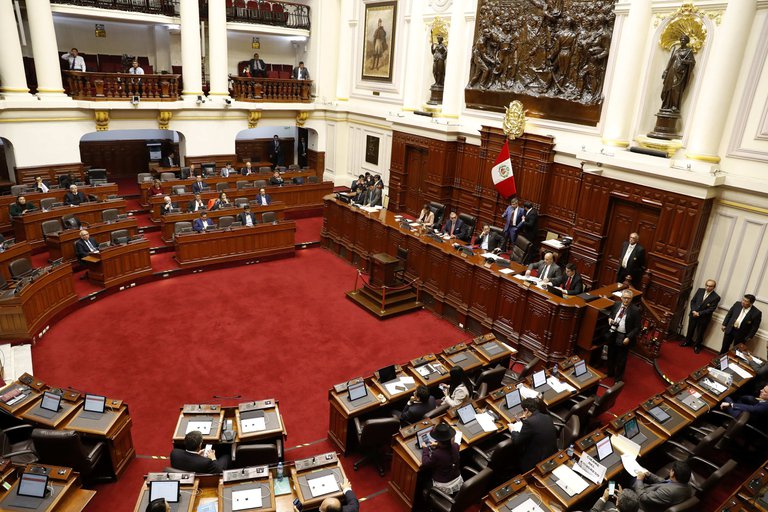RIO DE JANEIRO, BRAZIL – The Peruvian Congress approved on Thursday, February 4th, the elimination of parliamentary immunity, a privilege that has been considered by a large part of the public in recent years as a measure of impunity for several legislators.

The end of this immunity was endorsed by 103 votes in favor, 14 against and one abstention, during the first session of the Peruvian Congress plenary this year.
This was the second vote to advance this initiative; since it amends Article 93 of the Peruvian Constitution, it required approval in two different congressional sessions.
Among the fourteen votes against the elimination of parliamentary immunity there were eleven from the pro-Fujimori party Fuerza Popular, under investigation along with its leader Keiko Fujimori for alleged money laundering in the previous electoral campaigns of former president Alberto Fujimori’s daughter (1990-2000).
Other legislators under investigation for alleged corruption, such as former Comptroller Edgar Alarcón, and for human rights violations, such as former interim president Manuel Merino, accused of repressing the massive demonstrations that forced him to resign as transitional president last November, also voted against the bill.
Congressmen in the Judge’s Hands
From the moment this constitutional amendment is published in the official gazette, common crimes committed by congress members during the exercise of their mandate will fall under the jurisdiction of the Peruvian Supreme Court.
Crimes committed by congress members before their term of office will be under the jurisdiction of the ordinary criminal courts.
This implies putting an end to the congressional commission in charge of ruling over parliamentary immunity exemptions; the committee had become a shield for different congressmen according to the political alliances within Congress.
The spokesman for the parliamentary group of the ultra-nationalist party Unión Por el Perú (UPP), José Vega, lamented that the reform did not also withdraw the immunity of other high-ranking officials such as the president of the Republic and cabinet ministers, something considered last July.
Eliminating parliamentary immunity was part of the reform of political and judicial institutions promoted by former president Martin Vizcarra (2018-2020), who even said he could call a referendum on the matter given the reluctance shown by many legislators to lose this protection.
Source: infobae

